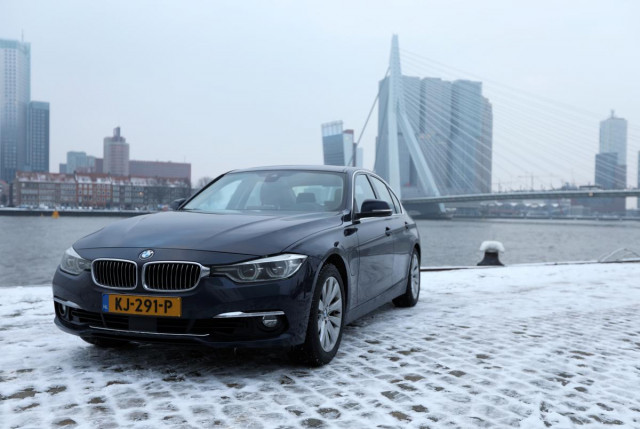Rotterdam links up with hybrid BMW owners to cut pollution
Launches Electric City Drive project to cut greenhouse gas emissions

Seeking thrifty ways to cut pollution, Rotterdam links up with hybrid BMW owners. PHOTO: REUTERS
Hosli is taking part in Electric City Drive, one in a series of projects planned by the city of Rotterdam and BMW looking to cut greenhouse gas emissions and reduce traffic pollution - without breaking the bank.
“The first results look promising,” said Arno Bonte, the city’s Vice Mayor, who oversees energy policies. “I hope we can extend this project as soon as possible, also to owners of cars by other brands.” Participants have a smartphone app, developed by BMW, which monitors their engine usage and reminds them to switch, voluntarily, to electric driving when they hit a geo-fence. Costs to the city, Bonte said, are nil.
Initial results show participants are willing to use battery power exclusively, while in the zone about 90% of the time. The Netherlands is an outlier in Europe with relatively more hybrids than electric vehicles, 100,000 versus 40,000 - together still just a small fraction of the 8.1 million vehicles on the country’s roads.
A BMW hybrid car stands near Rotterdam’s Erasmus bridge, as car’s owner Daan Hosli participates in a programme testing whether hybrid drivers can be encouraged to drive exclusively on electric batteries in the city’s centre, in a bid to reduce greenhouse gas emissions as well as other pollutants, in Rotterdam, the Netherlands.
But “if you really want to make a difference now, you have to look at hybrids,” said BMW Netherlands CEO Stefanie Wurst. That is because, with European cities struggling to meet dual goals of improving air quality and reducing greenhouse gas emissions from cars by 30% by 2030, they need practical ways of making progress quickly, rather than holding out for a distant - and costly - entirely electric car future.
And it’s not proving easy. German cities are angering diesel car owners by banning high-polluting vehicles from some of their streets, while French plans for a fossil fuel surcharge set off the “yellow vests” street protests. Even in wealthy Norway, which leads the world in electric car adoption, Oslo is introducing fees for charging and looking at ways to avoid expensive grid upgrades.
“Positive stimulation is always better than negative sanctions,” Wurst said.
She said Rotterdam programme participants had responded well to small rewards, such as a discount pass for local attractions, as well as from the simple reminder to switch.
A financial incentive to run hybrids on electricity is theoretically built in, as electricity is cheaper than petrol per kilometre travelled.
Published in The Express Tribune, January 28th, 2019.
Like Business on Facebook, follow @TribuneBiz on Twitter to stay informed and join in the conversation.



















COMMENTS
Comments are moderated and generally will be posted if they are on-topic and not abusive.
For more information, please see our Comments FAQ